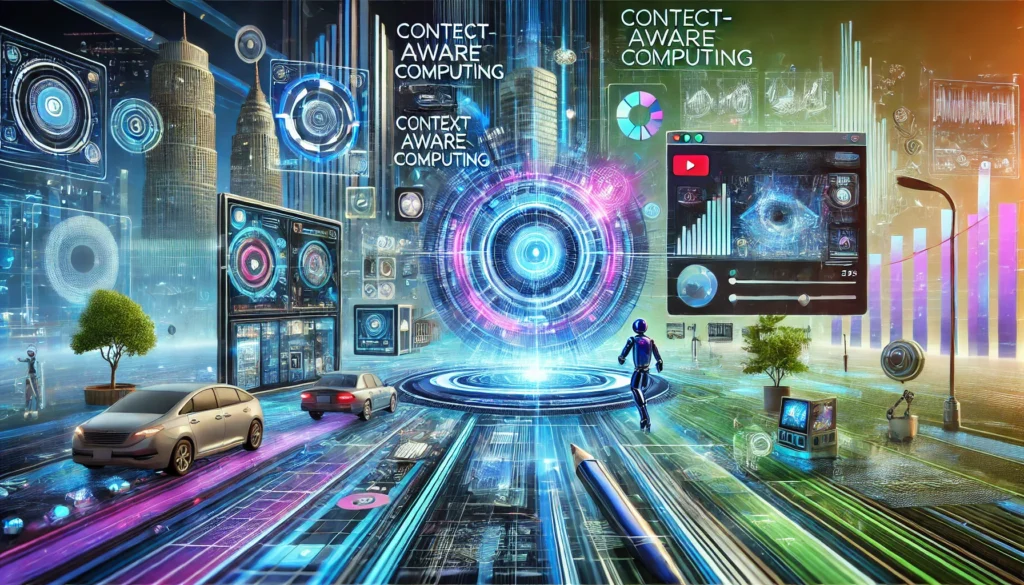Table of Contents
Introduction
In 2024, context-aware computing continues to revolutionize industries by integrating advanced technology and personalized user experiences. This blog explores the latest market trends, innovations, and forecasts in context-aware computing, including edge computing, e-learning, and global education. By understanding these trends, businesses can leverage emerging technologies to enhance user engagement and efficiency.
1. What is the Global Forecast for Edge Computing Market to 2024?
Edge computing is rapidly becoming essential for industries seeking to process data closer to the source, reducing latency and enhancing real-time analytics. The global edge computing market is expected to grow from $6.1 billion in 2020 to $15.7 billion by 2024, driven by the demand for IoT devices, AI, and 5G technologies. Key sectors leading this growth include telecommunications, healthcare, manufacturing, and retail, where real-time decision-making is critical.
- Case Study: Healthcare Industry
Edge computing is revolutionizing telemedicine by enabling real-time data processing for remote patient monitoring. This technology reduces response times, improving patient outcomes, particularly in rural and underserved areas.

2. What is the Global E-learning Market Analysis and Trends Industry Forecast to 2025?
The e-learning market is on an impressive growth trajectory, largely fueled by the demand for remote learning and digital education platforms. Valued at $197 billion in 2020, the market is expected to reach $325 billion by 2025, driven by innovations in AI, AR/VR, and mobile learning. As more institutions adopt personalized learning technologies, e-learning platforms are becoming more accessible and effective.
- Case Study: Corporate Training
Global enterprises are using AI-powered e-learning platforms to provide personalized training programs for employees. These platforms improve engagement, retention, and productivity, transforming how businesses approach professional development.
3. What is the Future of Global Education?
The future of global education lies in the integration of digital technologies that facilitate personalized, flexible, and inclusive learning experiences. By 2025, digital education will play a pivotal role in democratizing access to quality education, particularly in developing regions. Innovations like AI-driven tutoring, blockchain-based credentialing, and immersive learning environments are set to reshape the traditional classroom, making education more accessible to all.
- Case Study: AI in K-12 Education
AI-based tools like intelligent tutoring systems and predictive analytics are helping schools offer personalized learning plans for students. This not only improves learning outcomes but also helps educators identify areas where students need additional support.

4. What is Future E-learning?
The future of e-learning is driven by a growing demand for flexible, accessible, and immersive educational experiences. By 2025, AI, machine learning, and virtual reality (VR) will enable more interactive and engaging e-learning platforms. Personalized learning paths will become the norm, allowing learners to advance at their own pace. Moreover, microlearning—delivering content in small, manageable chunks—will become more prevalent, catering to busy professionals looking to upskill.
- Case Study: VR in Higher Education
Universities are adopting VR for virtual lab simulations and immersive learning experiences. This technology allows students to engage with complex concepts more interactively and practically, particularly in fields like engineering, medicine, and architecture.
Conclusion
As we look ahead to 2024 and beyond, context-aware computing, edge computing, and e-learning will continue to transform industries across the globe. Integrating AI, IoT, and immersive technologies will enable more personalized, efficient, and accessible solutions, reshaping how businesses and educational institutions operate.
What is context-aware computing?
Context-aware computing is a technology that enables systems to adapt their behavior based on real-time contextual data, such as user location, preferences, activities, or environmental conditions. It helps in providing personalized user experiences by leveraging data from various sensors and sources.
What industries are driving the growth of context-aware computing?
The leading industries driving growth in context-aware computing include healthcare, retail, automotive, telecommunications, and manufacturing. These sectors utilize context-aware systems to improve customer experiences, optimize operations, and enhance automation.
What is the forecast for the global edge computing market in 2024?
The global edge computing market is projected to grow from $6.1 billion in 2020 to $15.7 billion by 2024. This rapid growth is fueled by the expansion of IoT devices, 5G adoption, and the need for real-time data processing across various industries like healthcare, manufacturing, and smart cities.
How is AI transforming e-learning?
AI is revolutionizing e-learning by enabling personalized learning experiences, automated grading, intelligent tutoring systems, and adaptive content delivery. It also helps educators track student performance and offer customized learning paths for better engagement and outcomes